Casting
Casting
In der Welt der Stahlproduktion und des Stahlhandels spielt Casting, zu Deutsch Gießen, eine zentrale Rolle. Dies ist ein komplexer Prozess, der für die Herstellung verschiedenster Stahlprodukte unerlässlich ist. Trotz seiner Komplexität ist das Verfahren in seinen Grundzügen leicht zu verstehen.
Was ist Casting?
Casting ist ein Fertigungsverfahren, bei dem flüssiger Stahl in eine Form, die Gussform, gegossen wird. Wenn der Stahl abkühlt und verhärtet, entsteht die endgültige Form des hergestellten Teils. Dieses Verfahren wird oft verwendet, um komplizierte Formen zu erzeugen, die durch andere Fertigungsverfahren schwer herzustellen wären.
Vorteile von Casting
Einer der Hauptvorteile des Casting ist seine hohe Flexibilität. Es ermöglicht die Herstellung von Bauteilen in nahezu jeder Form und Größe, was insbesondere bei großen oder komplex geformten Teilen von Vorteil ist. Darüber hinaus ist das Gießen von Stahl eine kosteneffektive Methode, insbesondere bei der Herstellung großer Mengen von Teilen.
Verschiedene Arten von Casting
Es gibt verschiedene Arten von Casting, die in der Stahlindustrie eingesetzt werden. Dazu gehören Sandguss, Druckguss, Schleuderguss und Feinguss. Jeder dieser Typen hat seine spezifischen Vor- und Nachteile und wird für unterschiedliche Anwendungen eingesetzt.
Casting und Stahlhandel
Casting spielt auch eine wichtige Rolle im Stahlhandel. Da das Gießen von Stahl zu einer Vielzahl von Produkten führt, vom Bau über die Automobilindustrie bis hin zur Herstellung von Maschinen, ist es ein wichtiger Faktor in der Lieferkette des Stahlhandels.
In der Welt der Stahlproduktion und des Stahlhandels ist das Verständnis des Casting-Prozesses daher ein Muss. Mit diesem erworbenen Wissen können Sie nun mit Vertrauen über das Thema sprechen und durch Ihr fundiertes Fachwissen beeindrucken.
Blog Posts with the term: Casting
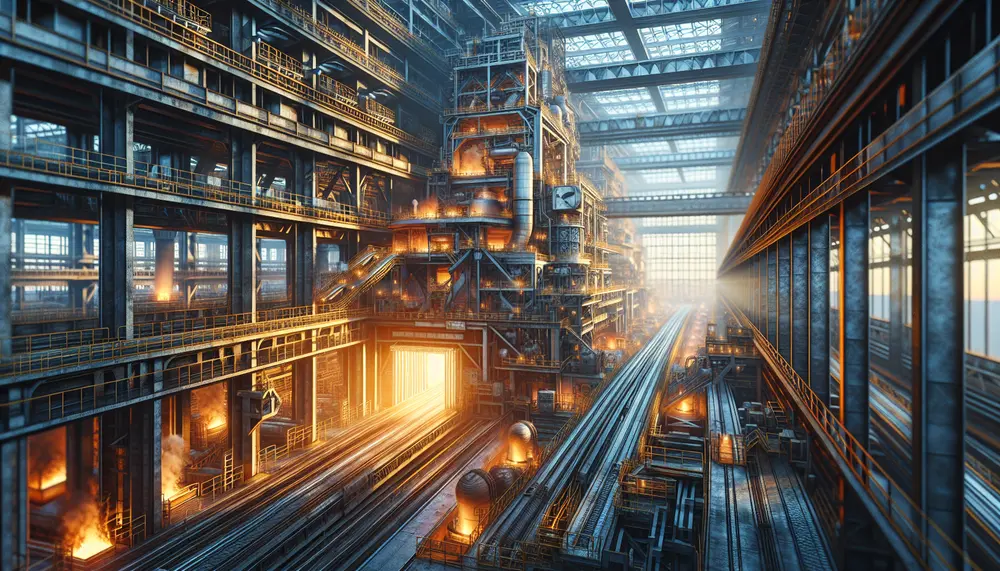
Steel making is a sophisticated process that turns iron ore into steel, involving methods like the Blast Furnace and Electric Arc Furnace to produce various grades of steel. The industry emphasizes sustainability by using additives and recycled materials while ensuring...
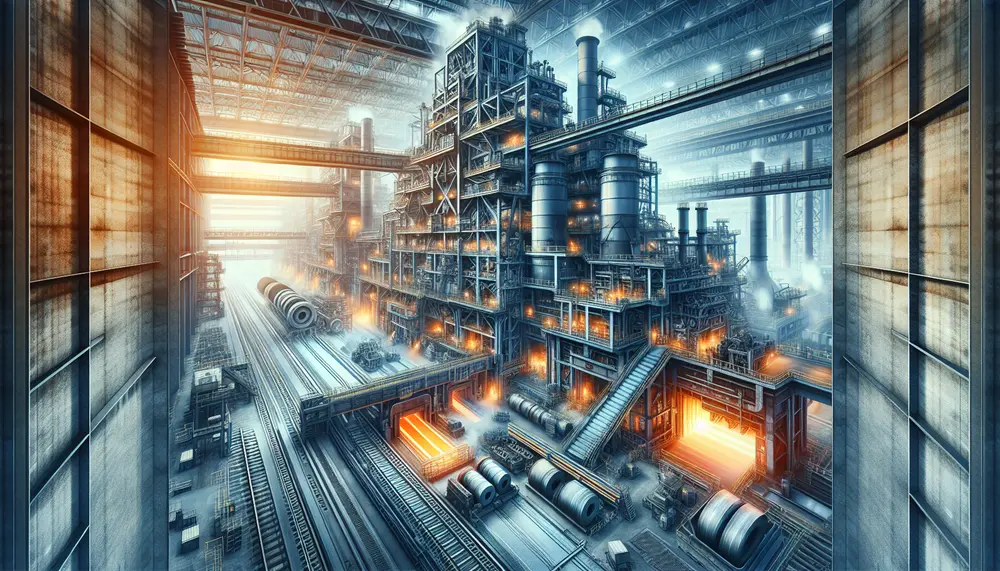
The article provides an overview of the steel making process, detailing how raw materials like iron ore, coke, and limestone are transformed into versatile and durable steel through a complex series of steps depicted in a flow diagram. It discusses...
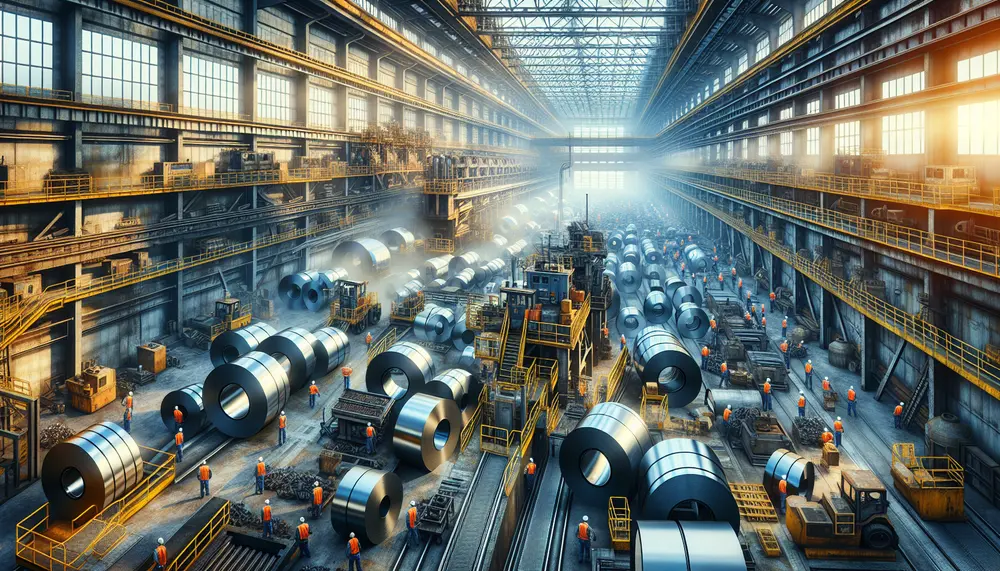
The steel industry is essential but poses significant risks to workers, including physical dangers from heavy machinery and extreme heat, chemical hazards from toxic substances, burn threats due to high temperatures in furnaces, and noise pollution leading to potential hearing...
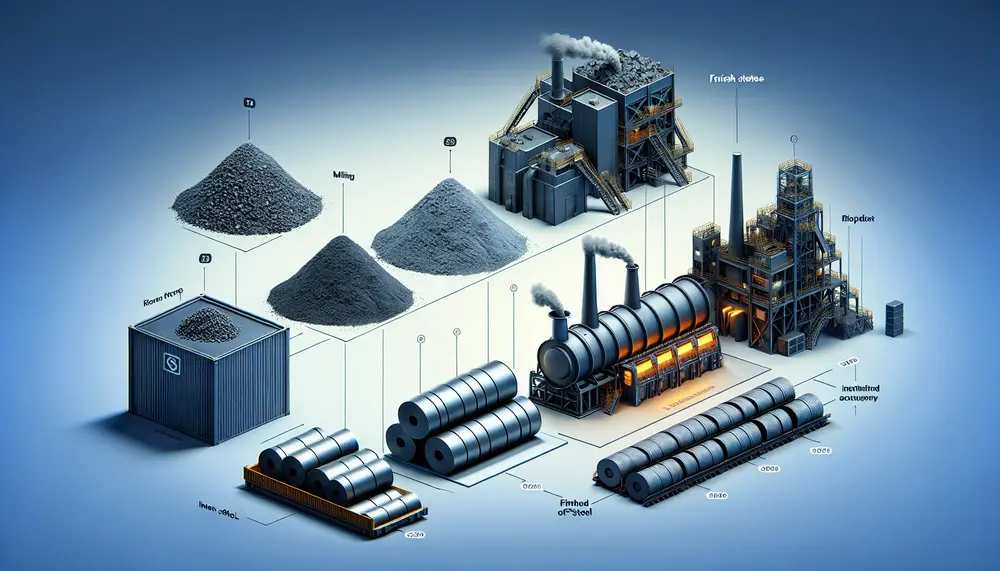
The steelmaking value chain is a complex process that transforms raw materials like iron ore, coking coal, and limestone into high-quality steel through strategic steps involving technological innovation to optimize efficiency and reduce environmental impact. Understanding this value chain helps...
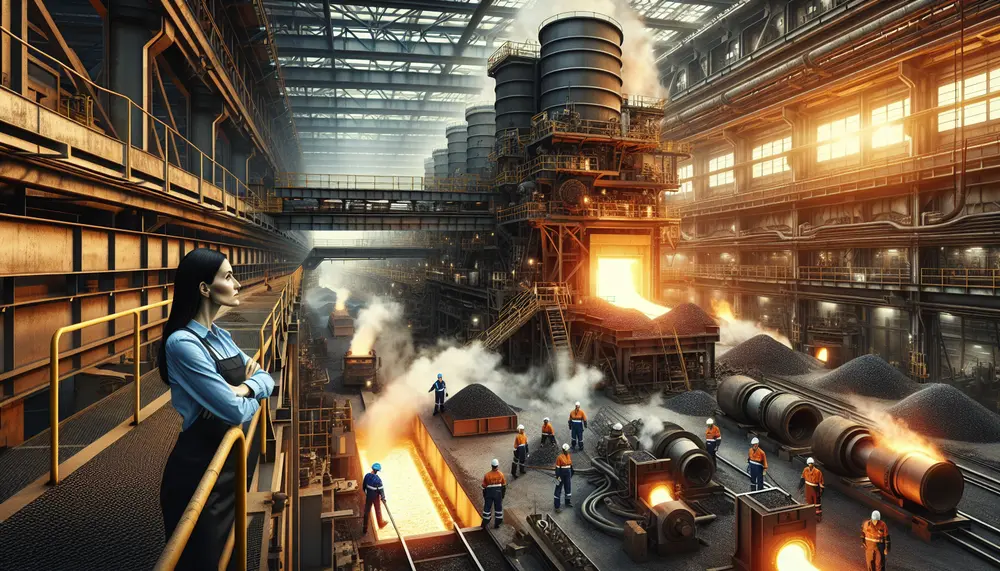
The article "Introduction to Steelmaking from Pig Iron" explores the historical and modern processes of transforming pig iron into steel, including methods like the Bessemer Process, Basic Oxygen Steelmaking (BOS), and Electric Arc Furnace (EAF). It highlights the importance of...
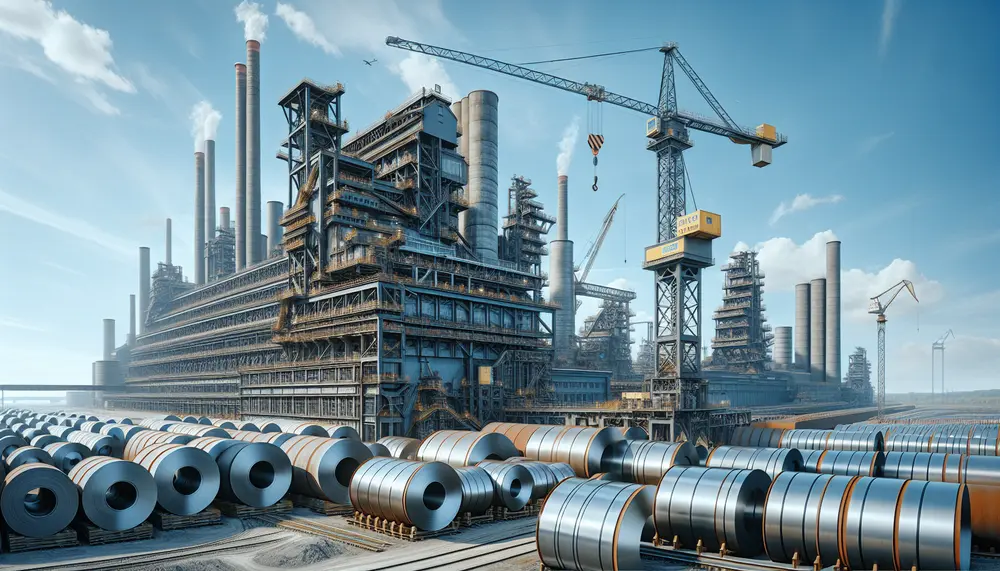
The steel industry in the Netherlands is integral to its economy, known for innovation and sustainability, with a focus on high-grade production used across various sectors. The Dutch sector's evolution has been shaped by historical shifts and strategic investments like...
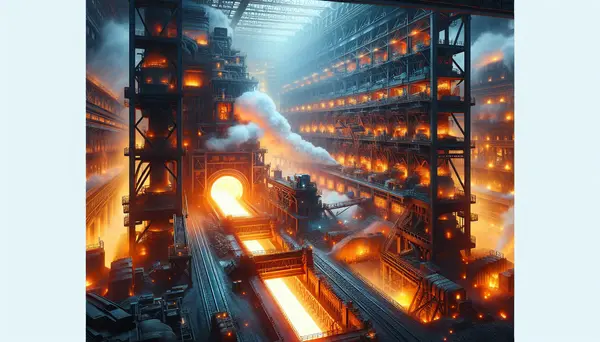
Steel, an alloy primarily composed of iron and carbon, is a crucial material in modern construction and manufacturing due to its strength, flexibility, and durability. The process of making steel involves extracting iron ore, purifying it through beneficiation processes, smelting...
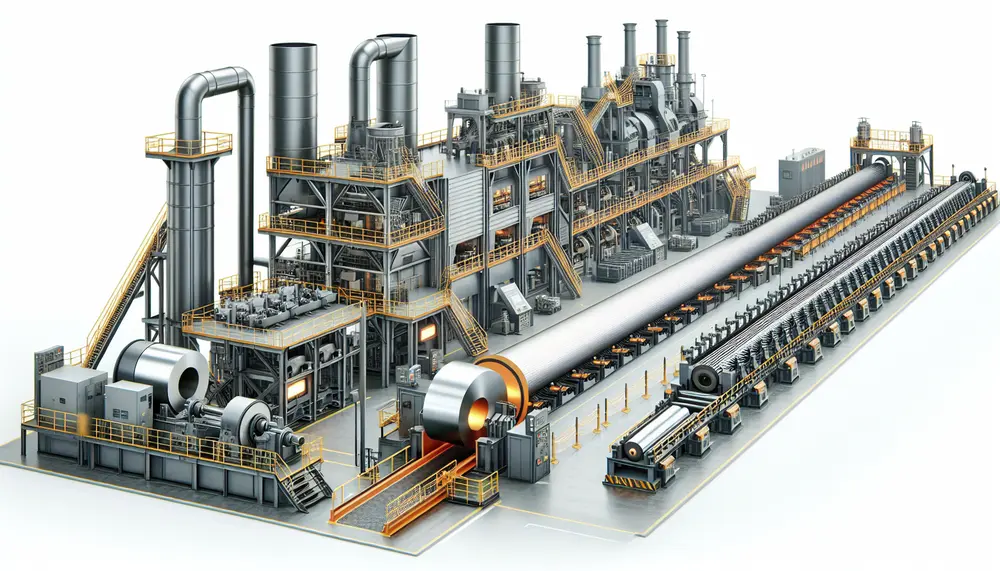
Steel manufacturing is a complex process that transforms iron ore into steel, involving precise heating and mixing to create different grades for various applications. The journey includes primary methods like Basic Oxygen Steelmaking (BOS) and Electric Arc Furnace (EAF), followed...
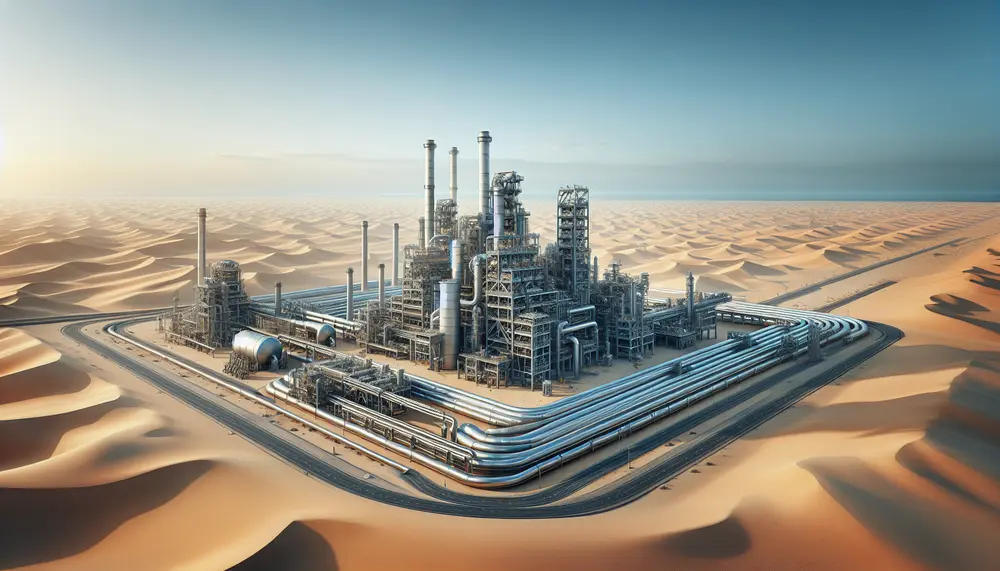
Kuwait's steel production is on the rise due to government initiatives, modernized facilities, and strategic location for trade. This growth supports economic diversification and attracts investment but also raises concerns about environmental impact and resource usage....
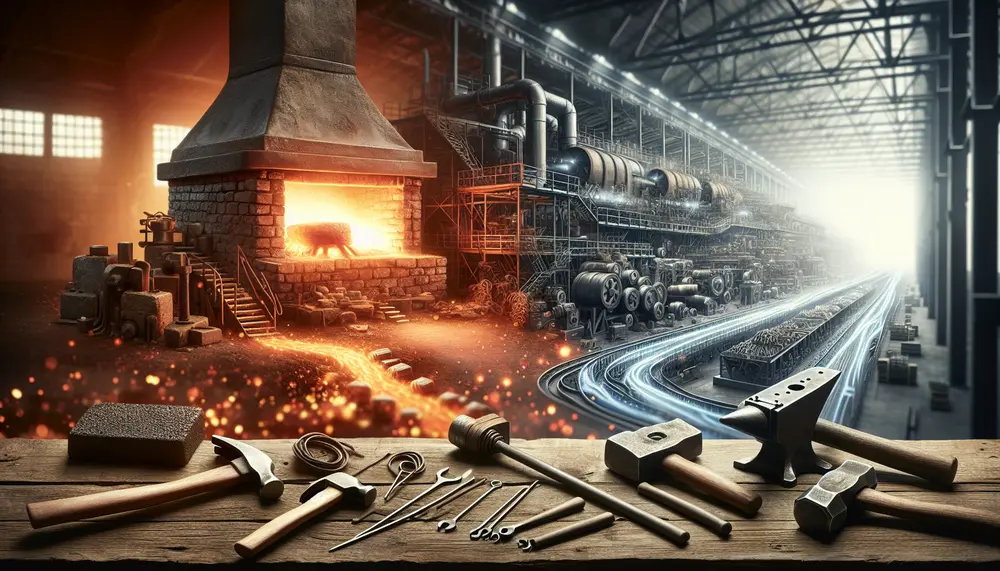
Steel's origins trace back to meteoric iron and evolved with human discovery of smelting around 2500 BCE, leading from the Bronze Age into the Iron Age. The Bessemer Process in the mid-19th century revolutionized steel production, enabling mass production and...
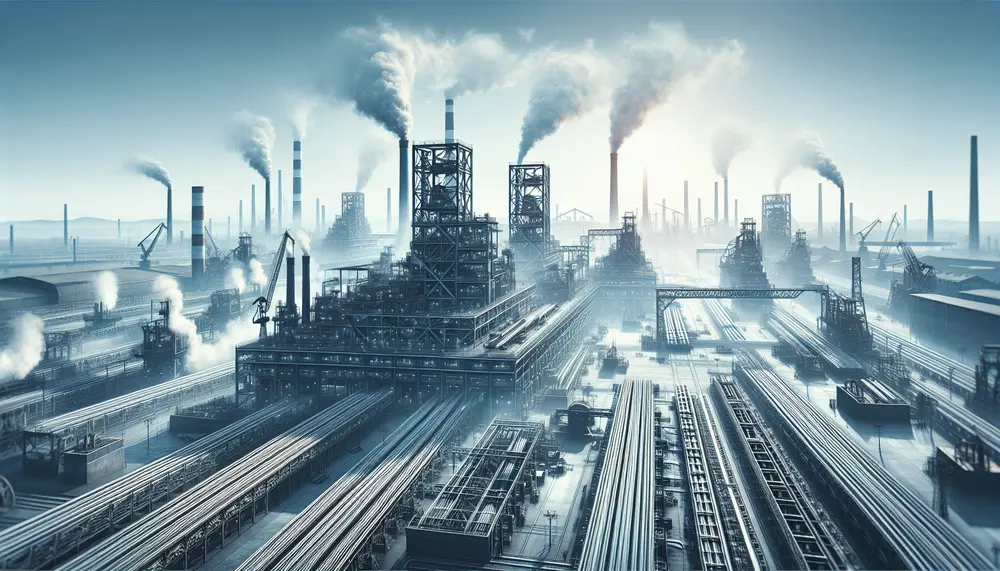
Steel production in the United States varies by state, reflecting unique resources, workforce skills, and industrial strategies; key states like Indiana, Pennsylvania, Texas, and Ohio lead due to factors such as natural resource availability and technological innovation. Mini-mills have revolutionized...
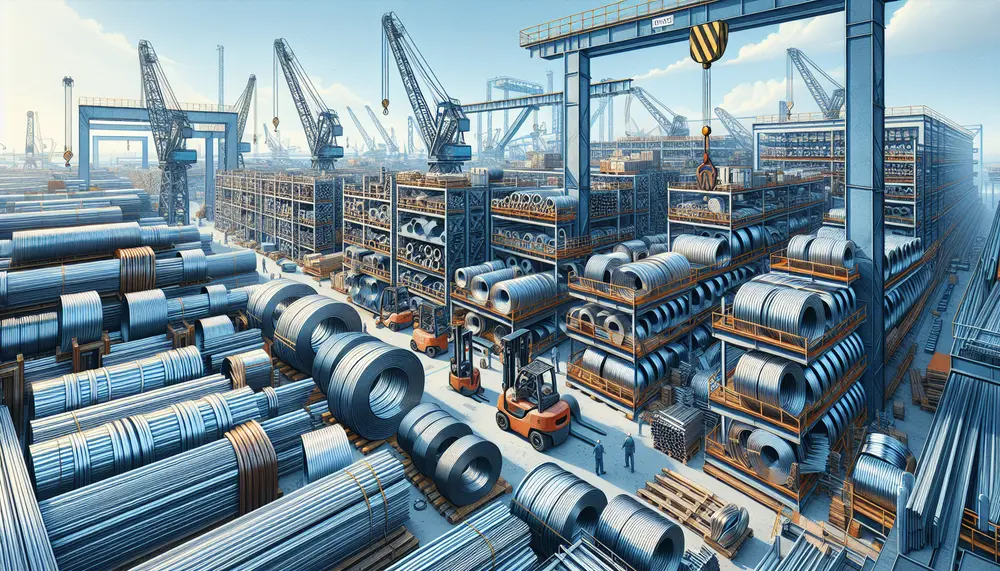
The global steel industry is a critical component of modern infrastructure and economic growth, with production levels indicative of a country's development stage. China dominates the market as the largest producer, while other key nations like Japan, Germany, and India...
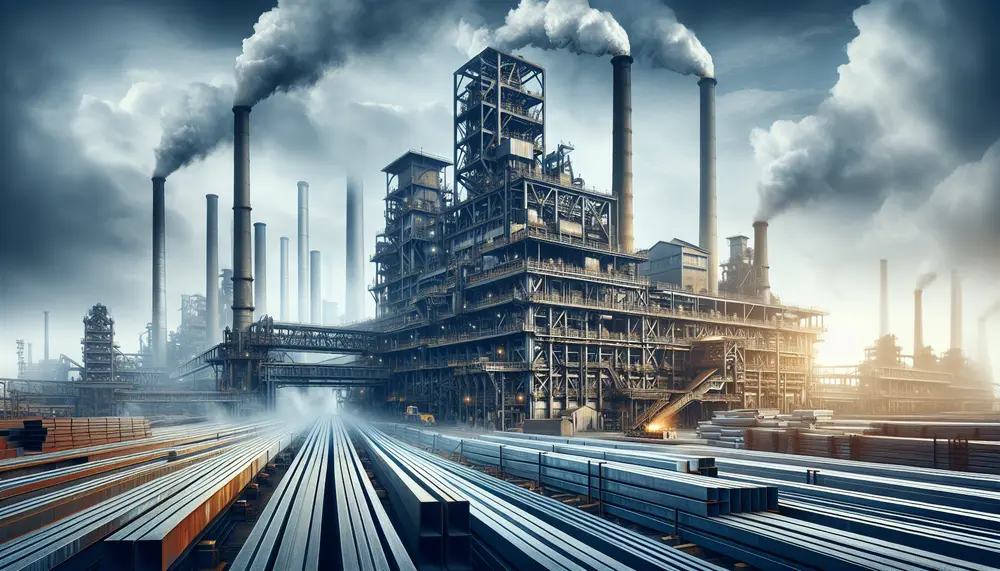
Steel production is a highly energy-intensive process with significant environmental impacts, making the understanding and monitoring of energy consumption at each stage crucial for sustainability. Energy efficiency in steel manufacturing is essential for cost-effectiveness, competitiveness, and reducing carbon emissions, with...
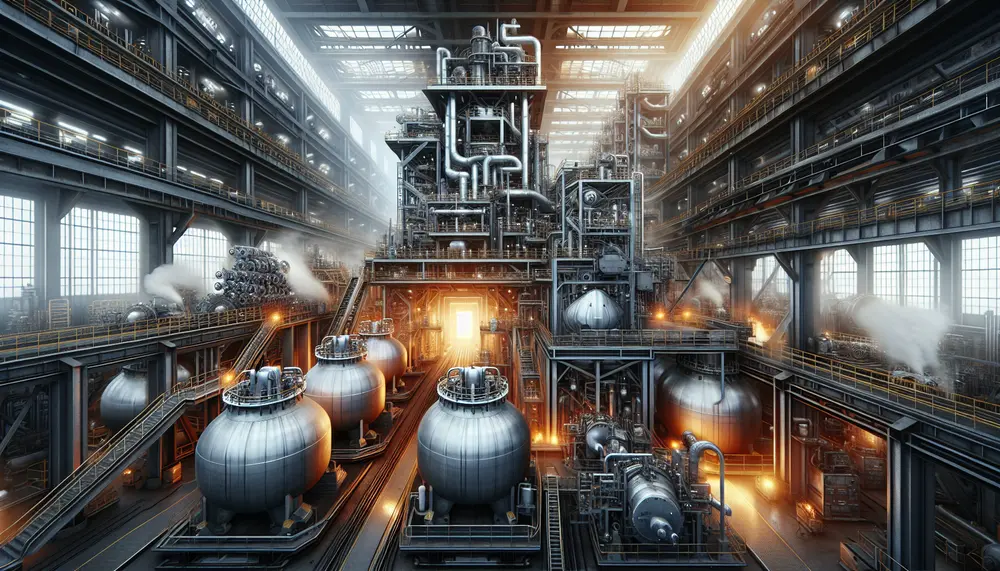
The Argon Oxygen Decarburization (AOD) process is a secondary steel making method that refines the composition of steel by reducing carbon content, using oxygen and inert gases like argon for controlled reactions. This technology allows for high-quality alloy production with...
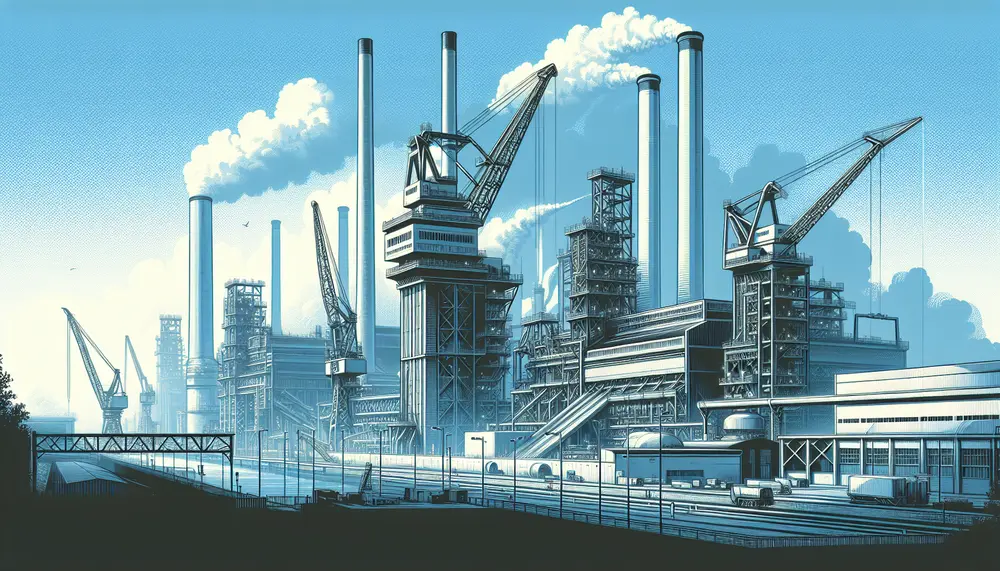
Steel production is a fundamental aspect of Luxembourg's economy, driving innovation, job creation, and international trade while shaping the nation’s industrial landscape. The industry has evolved through technological advancements and sustainability efforts to maintain its relevance in the global market....
